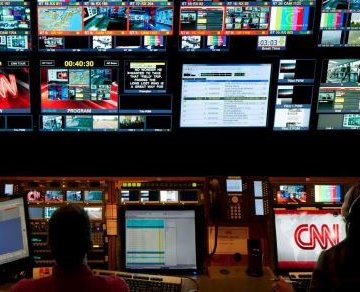- About
- Topics
- Picks
- Audio
- Story
- In-Depth
- Opinion
- News
- Donate
- Signup for our newsletterOur Editors' Best Picks.Send
Read, Debate: Engage.
In yet another bumper week for news, the Iraq War was declared dubious (as though this was never clear for anyone), Tony Blair has been formally accused of holding Parliament in contempt (basically, they’re saying he lied to Parliament about going to war); a gunman in Dallas killed several police officers at a peace rally in apparent despair and rage against white supremacist violence on black US citizens; Osama Bin Laden’s son went all social-media on us by declaring ‘we are all Osama’ - a phrase this author predicts will not catch on, or at least not without its very own ironic hashtag; a super-typhoon along the coast of Eastern China has killed several people, and displaced thousands; More than 300 people have been killed in South Sudan due to a rise in the tension again between factional forces; Zimbabwe came to a standstill as the nation took part in protests against governmental corruption. And Ronaldo hurt his knee.
There seems to be a relentlessness to 2016 so far. Not only is the legal machinery in the UK and the EU going haywire in the wake of Brexit, but so are long-held preconceptions of world-order: There has been a reshaping of the Middle East this year, a rise of rightwing forces across the Global North, and concerted effort to block positive action on climate change. What’s more, the continual bombardment of atrocities and natural disasters across the world has given this year a peculiar colour; A feeling of acceleration, of compressed time, of horror after horror after horror. So much so that otherwise major news stories seem to fade into a background of unending noise – a milieu of catastrophe.
How in this world, of the 24 hour news-cycle can we keep abreast of the shifting currents of global politics? You don’t need an app or a tool – it’s easy: Look outside. Chances are, you’re reading this in the Global North, from the safety of an office, a house, or a cafe. Just look at the street – given the scale of disruption the world has faced in the past year, it is quite likely that near you, the demographics of change are already quietly underway. You may notice more homeless people than before. You may notice people, who could conceivably be from Syria. You might even notice a slightly emboldened skinhead stomping down the street. Or maybe that’s just confirmation bias...
The gap between the news on our screens and what lays before us, for many of us, seems never to have been larger. And ironically, we can also convince ourselves that what might just be a broadcast phantom is actually at our gates, desperate to take our lives, jobs money (refugees, for e.g.) News plays with our minds - we might not see it happening at all. We might think we're seeing the impact of it right in front of our eyes.
The important thing in guiding our political actions, however earnest or detached, is to remember for many people around the world, the story couldn’t be any more different – the most difficult thing to remember during these times, is that the background noise of horror, is someone’s very real foreground. This should help us decide whether we want to help commit to a course of solidarity or not.
